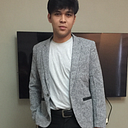Guide on Rental Pricing in the Philippines: Condominiums
Planning to get their first ever condominium can be hard for some of our OFWs and migrant Filipinos. Doing some research , talking to real estate professionals, and manually calculating the cost will ease that but what will you consider next?
Photo: Wil Tower in Quezon City
Owning a condominium is a flexible thing. You can use it as a home, spot for vacation, or take it as a property investment.
Imagine this: After signing the papers, you can patiently wait while investing on something else. By some time, your unit is already finished and you can move in. You step inside and see the fruit of your hard earned money. A sense of accomplishment ripples down as it is your first investment in motion.
This is the reaction most OFWs confess the first time they see their unit. It’s the start of something fresh or even something more. Why not venture into two or more units?
Vistaland International offers a wild array of condominium units and caters almost all categories from economic to luxurious packages. Visit their website for more information and you might find it interesting and end up reserving on the spot!
Moving forward, now that you are enjoying your first unit you are presented with real challenges. You need to look for things such us posting it as a renting unit on social media or do some additional make over to get the interiors more exciting. But that’s a story for another time. Today I will be showing you guides on how to get the rental fees on point.
1. Consider The Location
Finding a good location is the basis of all renters. Owning a business in a better location is at the utmost convenience. Buildings with shortcuts and access to malls directly has a much higher price.
Floor level can also influence some price change. Corner units are typically expensive compared to ones in the hallway due to additional space and extra views on the window.
2. Evaluate The Condo’s Value
In determining the base price of the rent one must know the value of the unit. This is to know the margin of profit and by then you can include the utilities and other miscellaneous things.
Of course, the bigger the unit is the higher it may rate. It’s layout can be a factor as well in increasing the price. The number of rooms, beds, windows , etc.
3. Factor In Additional Cost
Aside from what I stated above, you may also need to check some additional costs like move-in fees, property taxes, amortization rate, insurance and even association fees.
4. Compare Prices With Other Condominium Units
One of the biggest mistake is stating your own rent price without knowing that it is much higher than the others, this is due to lack of research and this is a big problem.
A good strategy of course is looking for units similar to yours and from there you can rate your base rent price ranges.
5. Make A Checklist Of Amenities And Appliances
Additional amenities means additional convenience and leisure for the renters so it is more likely to increase the rate of the rent depends on the amenities present in your unit.
You may also place appliances such as rice cookers and washing machines as a package for your unit renting. Just make sure to keep a checklist if certain, you know what, case arises.
6. Pinpoint Key Buildings Near Your Condo
The same reason as the location, pinpointing key buildings increases the rate of rent. For instance, imagine the time it’ll save them to go to hospitals, schools, parish if your unit is near those key buildings.
7. Consider The Length Of Tenant’s Stay
You may want to ask the tenant if they’ll stay for a longer time or just a standard lease, which is for about a year. Either of the two is the case you can always negotiate price accordingly.
You may also want to do things such as drafting a contract to make sure that the tenants are bind and must follow what is stated to your negotiated price. You should always monitor the date the tenant will pay the rent. You may want to follow a schedule for this so you wont get any problem sooner. You may also want to background check the tenant for safety purposes. Ask for their reason and check their purpose as to why they are renting to prevent certain cases.
Must read topics
